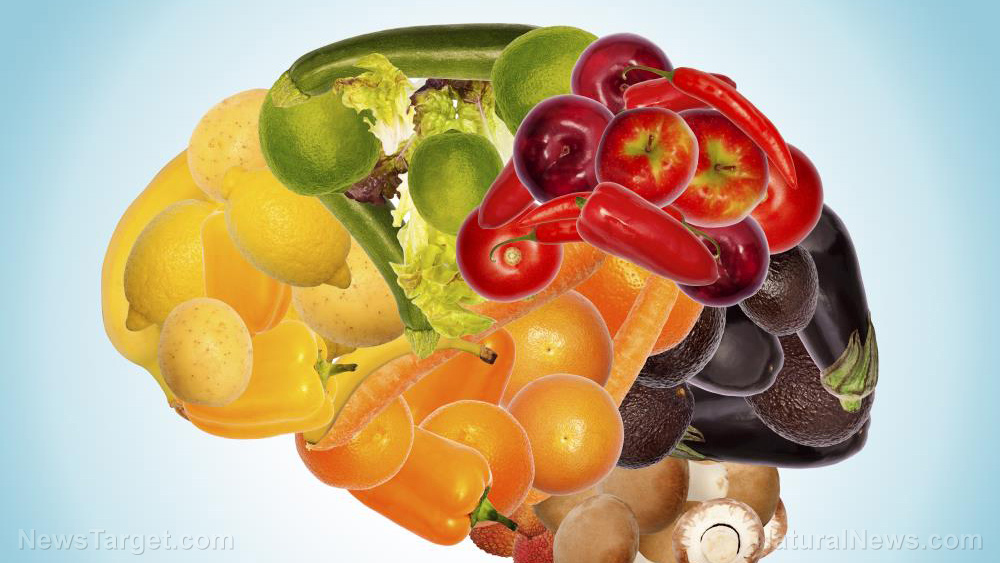Study: Nutrient in eggs and meat found to significantly reduce dementia risk
06/22/2020 / By Divina Ramirez

It’s no secret that choline, an essential nutrient found in eggs, meat and shellfish, has potent brain-boosting properties. That said, little is known about its effects on age-related mental decline.
A team of researchers from the University of Eastern Finland and the University of Helsinki presented evidence supporting choline’s protective effects against mental decline in a recent study.
Published in the American Journal of Clinical Nutrition, their findings suggest that a higher intake of phosphatidylcholine, the major component of cell membranes, reduces the risk of incident dementia and boosts cognitive performance as well.
The team is the first to observe a definite connection between choline intake and dementia risk.
Choline protects against incident dementia
According to principal investigator Maija Ylilauri, people who eat more eggs do better in certain cognitive tests. She and her team observed this in an earlier study while investigating the link between egg intake and the risk of incident dementia or Alzheimer’s disease.
Because of their finding, the researchers became interested in knowing whether or not choline had something to do with it, as eggs are some of the richest sources of choline in the form of phosphatidylcholine.
To examine if choline can help prevent cognitive decline, Ylilauri and her team gathered data from a sample of 2,497 dementia-free Finnish men. Between 1984 and 1989, researchers involved in the ongoing Kuopio Ischaemic Heart Disease (KIHD) Risk Factor Study had evaluated the dietary and lifestyle habits of these participants.
A subset of 482 participants completed five different tests designed to measure their cognitive performance. The tests were conducted four years after the onset of the KIHD. After a follow-up period of almost 22 years, the researchers gathered these men’s health records from Finnish health registers to check for diagnoses of dementia and/or Alzheimer’s disease.
Upon analyzing their data, the researchers found that 337 of the 482 participants had been diagnosed with dementia. But those who had the highest intake of phosphatidylcholine had a 28 percent lower risk of dementia than those with the lowest intake.
The participants with the highest phosphatidylcholine intake also did better on cognitive performance tests than those with lower intakes. The researchers noted that the main sources of phosphatidylcholine in the participants’ diets were eggs and meat.
Based on their findings, the researchers concluded that higher intake of phosphatidylcholine is linked to a reduced risk of incident dementia and better cognitive performance.
Other brain-boosting nutrients in eggs and meat
Despite the promising results of their investigation, Ylilauri noted that more studies are required to obtain stronger evidence that eating choline-rich eggs and meat reduces the risk of dementia. (Related: The 5 best foods to boost your brain health.)
But organic eggs and meat also offer other brain benefits. Besides choline, these foods contain other brain-boosting nutrients that may help protect against age-related mental decline, such as:
- Omega-3 fatty acids – A review published in Frontiers in Aging Neuroscience reported that omega-3 fatty acids have neuroprotective properties and can inhibit the onset of various neurological disorders. Omega-3 fatty acids have also been shown across multiple clinical trials to enhance cognitive function in people with mild cognitive impairment.
- Vitamin D – Low levels of vitamin D are associated with cognitive impairment, according to two European studies. A recent review published in the journal Cureus also found that low levels of vitamin D are linked to a higher risk of dementia, autism, schizophrenia and other mental illnesses.
- Folate – A review published in Current Opinion in Clinical Nutrition & Metabolic Care reported that cognitive decline and Alzheimer’s disease are associated with low levels of folate. Experts also agree that folate supplementation is an important part of a brain-healthy diet.
The essential nutrients found in eggs and fresh, naturally raised meat can help protect the brain from cognitive decline. Eat these foods as part of a balanced diet to maximize their natural neuroprotective properties.
For more information about how to prevent dementia, visit Dementia.news.
Sources include:
Submit a correction >>
Tagged Under:
aging secrets, anti-aging, brain function, brain health, choline, cognitive health, dementia, disease treatments, food cures, food is medicine, functional food, natural medicine, nutrients, organic eggs, organic meat, prevention, research
This article may contain statements that reflect the opinion of the author
RECENT NEWS & ARTICLES
BrainNutrients.News is a fact-based public education website published by Brain Nutrients News Features, LLC.
All content copyright © 2018 by Brain Nutrients News Features, LLC.
Contact Us with Tips or Corrections
All trademarks, registered trademarks and servicemarks mentioned on this site are the property of their respective owners.





















